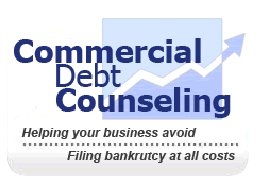Debt consolidation programs will also charge high rates of interest for their services. There may even be a monthly charge attached to the plan. The best solution for resolving debt is to contact the creditors and ask for extensions on your repayment plans. Some creditors will negotiate, offering you lower fees if you pay the debt off sooner. Some creditors will even drop the debts owed, realizing that the chances of getting their money is nil. You never know until you ask.
If your bills are lowered, it will grant you time to land some extra cash to payoff the debt owed. Some creditors may charge the amount, but lower your monthly installments according to your wages. This will allow you room to repay the debts at lower rates. Be aware that paying lower balances on debts may lead to costly IRS obligations and taxes, since if you are a "write off" or else reduction candidate, the information is posted with the IRS.
When it comes to debt, it can become frustrating, since it appears there is no way out. When you are working to restore your credit, you are working toward a brighter future. Remember, each bill you pay off subtracts the amount owed. Debt consolidation is like cutting grass, in that the lawn looks fresher once the weeds are whacked. It makes no sense to ignore your debts; rather working toward debt relief means working now to get rid of your debts.














